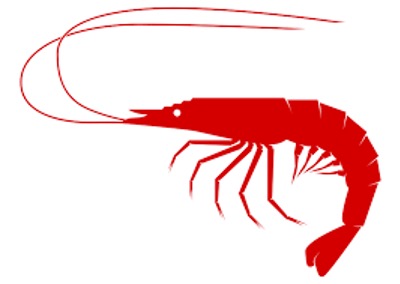Shrimp Shells - Bioplastic
Each year the world produces about 300 million tons of plastic. Half of this material is not recycled including 8 million tons that end up in the oceans. As often appens, a look at creation details provides an important solution to the plastic disposal problem. Biomimicry is the term given to the discovery of practical benefits found in nature, put in place at the beginning of time by the Creator.
Researchers at Harvard University have made a degradable form of plastic from two main ingredients, chitosan from shrimp shells and a fibroin protein found in silk. The name given to this new bioplastic is shrilk, taken from the words shrimp and silk.
The strong, new plastic substitute is useful for packaging and containers. It is also of medical interest, for example in sutures and as a foundation for tissue repair. A strong point of these applications is that the new plastic is entirely biodegradable over time. In addition, its manufacture requires no petroleum or high temperature production.
